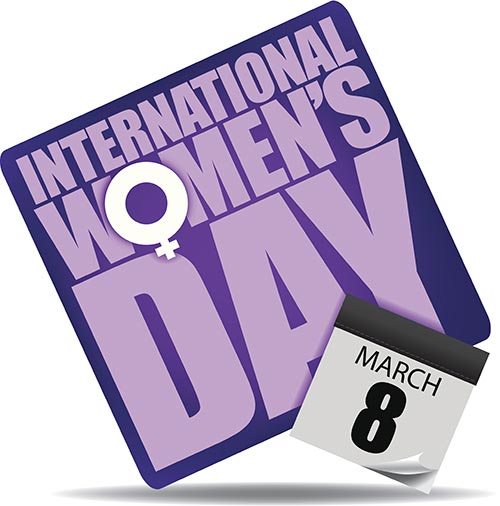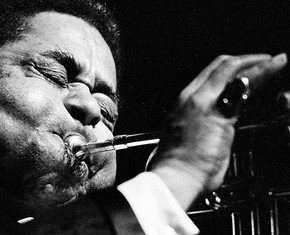The views expressed in our content reflect individual perspectives and do not represent the authoritative views of the Baha'i Faith.
 If you see anyone wearing a purple ribbon today – Saturday, March 8th – they may be joining in as the world celebrates International Women’s Day.
If you see anyone wearing a purple ribbon today – Saturday, March 8th – they may be joining in as the world celebrates International Women’s Day.
Those purple ribbons have become plentiful just about everywhere but in the West lately. If you live in China or Russia, or just about anywhere else but North America, you’ll probably be celebrating or demonstrating for women’s equality or just observing IWD in some way. IWD has also become a combination of Valentine’s Day and Mother’s Day in many places, so if you’re a woman you might even get a nice card, a small gift or something sweet to eat.
But if you live in North America – even though the holiday originally started there – chances are you’ll miss out, thinking it’s just another Saturday in March.
Here’s how that happened: the United Nations inaugurated its International Women’s Day observance in 1975, proclaiming a UN Day for Women’s Rights and International Peace. But the IWD got its start long before, when the American and European labor movements began to organize working women at the beginning of the 20th Century. Originally called International Working Women’s Day, it all started when women began to revolt.
 One of those revolts happened in February, 1909, when a huge demonstration in New York City marked the one-year anniversary of the New York Garment Workers’ Strike of 1908, and led to a mass walkout and strike called “The Uprising of the 20,000”. The era witnessed the birth of the International Ladies Garment Workers Union (ILGWU), which organized the mainly immigrant female laborers who worked in terrible sweatshop conditions in urban garment factories. Their slogan – “We’d rather starve quick than starve slow” – gave new impetus to the drive for women’s rights, especially the right to vote. Propelled by a newly-awakened women’s suffrage movement in North America and Europe, women around the world began to hold demonstrations and women’s suffrage marches to rally support for equal rights. In 1910, in a speech at a socialist convention, German labor leader Clara Zetkin first proposed International Women’s Day, in memory of all women who had struggled for equality. Then in 1917, a Women’s Day protest demanding bread for starving women in St. Petersburg, Russia, sparked the Bolshevik revolution, which eventually brought down Tsarist Russia.
One of those revolts happened in February, 1909, when a huge demonstration in New York City marked the one-year anniversary of the New York Garment Workers’ Strike of 1908, and led to a mass walkout and strike called “The Uprising of the 20,000”. The era witnessed the birth of the International Ladies Garment Workers Union (ILGWU), which organized the mainly immigrant female laborers who worked in terrible sweatshop conditions in urban garment factories. Their slogan – “We’d rather starve quick than starve slow” – gave new impetus to the drive for women’s rights, especially the right to vote. Propelled by a newly-awakened women’s suffrage movement in North America and Europe, women around the world began to hold demonstrations and women’s suffrage marches to rally support for equal rights. In 1910, in a speech at a socialist convention, German labor leader Clara Zetkin first proposed International Women’s Day, in memory of all women who had struggled for equality. Then in 1917, a Women’s Day protest demanding bread for starving women in St. Petersburg, Russia, sparked the Bolshevik revolution, which eventually brought down Tsarist Russia.
So the absence of IWD celebrations in North America shouldn’t be a surprise, since the holiday became a Cold War issue, celebrated in the socialist and communist bloc countries and therefore virtually ignored in the West before the 1970s, when the United Nations made the observance of IWD a worldwide event. In modern times, the IWD observance has begun to gain ground in the West, primarily because of the UN’s official recognition and the continuing strength of the women’s movement. The United Nations describes the IWD observance this way:
Since those early years, International Women’s Day has assumed a new global dimension for women in developed and developing countries alike. The growing international women’s movement, which has been strengthened by four global United Nations women’s conferences, has helped make the commemoration a rallying point to build support for women’s rights and participation in the political and economic arenas. Increasingly, International Women’s Day is a time to reflect on progress made, to call for change and to celebrate acts of courage and determination by ordinary women who have played an extraordinary role in the history of their countries and communities. – See more at: unwomen.org
The Baha’i teachings on the equality of men and women have impelled this worldwide push for women’s rights forward even before it began as a social movement. Baha’u’llah, the founder of the Baha’i Faith, called for the equality of women and men as one of the foundational Baha’i principles; and did so in a dangerous Middle Eastern context in the 19th Century. The Ottoman Empire tortured, exiled and imprisoned him for life as a result. His son Abdu’l-Baha, the exemplar and inheritor of his father’s Cause, advocated globally for the rights of women long before it became safe or politically fashionable. Here, in excerpts from a speech Abdu’l-Baha gave to a women’s suffrage organization in New York City in May of 1912, Abdu’l-Baha calls for the equal rights of women in clear and emphatic terms:
…mankind and womankind as parts of composite humanity are coequal and that no difference in estimate is allowable, for all are human. The conditions in past centuries were due to woman’s lack of opportunity. She was denied the right and privilege of education and left in her undeveloped state. Naturally, she could not and did not advance. In reality, God has created all mankind, and in the estimation of God there is no distinction as to male and female…. The most momentous question of this day is international peace and arbitration, and universal peace is impossible without universal suffrage. – Abdu’l-Baha, The Promulgation of Universal Peace, p. 133.
















Comments
Sign in or create an account
Continue with Googleor